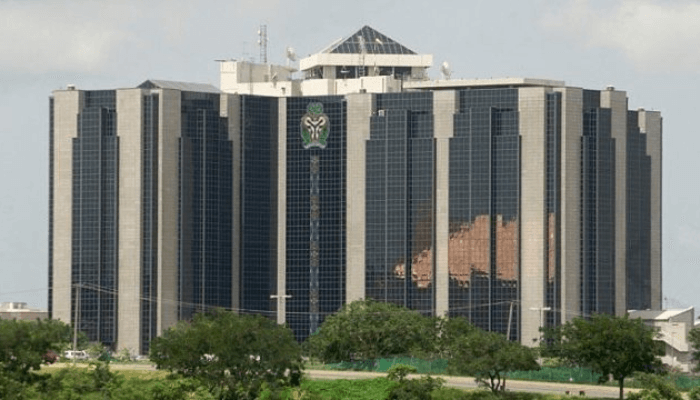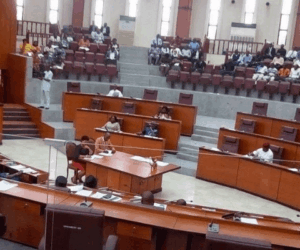The Central Bank of Nigeria (CBN) is delivering on its mandate of ensuring monetary and price stability as its policy reforms and strategies have slowed inflation rate, and stabilise the naira.
The National Bureau of Statistics (NBS) Consumer Price Index (CPI) report revealed that headline inflation fell from 21.88 percent in July to 20.12 percent in August.
Analysts maintain that the CBN’s focus on price stability is justified, as sustainable business activity and economic growth can only thrive in an environment of stable prices.
“This steady improvement signals a gradual return to price stability, raising hopes that the CBN may soon begin to ease its tight monetary policy stance,” said Muda Yusuf, the CEO of the Centre for the Promotion of Private Enterprise (CPPE).
For the CBN, price and exchange rate stability remain core mandates that shape its policy directions. At its first Monetary Policy Committee (MPC) meeting of the year in February 2025, the apex bank paused its long-standing policy rate tightening cycle, keeping the Monetary Policy Rate (MPR) at 27.50 percent and leaving other parameters unchanged. This marked the first pause since May 2022.
The decision, described by analysts as a “hawkish pause,” was aimed at assessing the impact of earlier tightening while still prioritising inflation control. It was also part of a broader strategy to stabilise the naira and maintain a positive inflation outlook. The results are now evident in the NBS report, which confirmed a 176-basis-point drop in headline inflation between July and August.
The August figure marked the fifth consecutive decline since April, surpassing projections even though many analysts had expected the disinflationary trend to continue. Food inflation, a major driver of overall inflation, also eased by 87 basis points to 21.87 percent in August, down from 22.74 percent in July. The decline was largely due to lower prices of key staples such as rice, guinea corn flour, maize flour, sorghum, millet, semolina, and soya milk. Core inflation, which excludes volatile farm produce and energy, dropped by 100 basis points to 20.33 percent in August from 21.33 percent in July.
Earlier this year, headline inflation had already shown signs of easing, declining by 34 basis points in July and 75 basis points in June. It had dropped from 22.97 percent in May to 22.22 percent in June, following an improvement of 52 basis points in April. The disinflationary trend, analysts argue, is underpinned by macroeconomic improvements and exchange rate stability.
Bismarck Rewane’s Financial Derivatives Company (FDC) observed that Nigeria’s inflation is closely tied to exchange rate movements, with recent naira stability helping to lower inflationary pressures. Analysts at CardinalStone also projected that the disinflation trend would continue, citing stronger fundamentals and improved macroeconomic conditions.
CardinalStone added: “The positive pass-through of the strengthening currency to inflation is likely to persist in September, with the official rate currently trading below N1,500 per dollar and appreciating by 2.4 percent month-to-date. The improving forex narrative reflects stronger fundamentals, especially with the current account in surplus and foreign reserves reaching $41.7 billion. Nigeria’s carry trade, the most attractive in Africa, has also kept foreign portfolio inflows net positive.”
Read also: Inflation must slow to 12% to bring back middle class — Adebajo
Other steps by the CBN
To deepen its inflation-fighting strategies, the CBN recently hosted the 2025 Monetary Policy Forum, which brought together fiscal authorities, legislators, private sector players, development partners, experts, and academics under the theme: “Managing the Disinflation Process.”
Olayemi Cardoso, governor of the CBN used the event to reiterate the bank’s commitment to price stability, its planned transition to an inflation-targeting framework, and efforts to restore purchasing power. He noted that the CBN has remained disciplined in its monetary approach, which has helped stabilise the FX market, narrow exchange rate disparities, and push external reserves beyond $40 billion as of December 2024.
“Managing disinflation amidst persistent shocks requires not only robust policies but also coordination between fiscal and monetary authorities to anchor expectations and maintain investor confidence,” Cardoso said. He emphasised that monetary policy must remain forward-looking, adaptive, and resilient.
Alongside inflation control, the CBN has also introduced new minimum capital requirements for banks, effective March 2026, to strengthen the financial sector and position Nigeria for a $1 trillion economy. Cardoso stressed that shifting from an exchange-rate-targeting framework to an inflation-targeting framework aligns with the bank’s mandate of stabilising prices.
Understanding inflation matters
The CBN has also sought to demystify inflation for the public. In simple terms, inflation refers to a continuous rise in the prices of goods and services. It is often described as “too much money chasing too few goods.” Inflation reduces purchasing power, meaning the same amount of money buys fewer goods over time.
For example, if N10 once bought 10 shirts, after prices double, the same amount would only buy five shirts. Nigerians are beginning to feel some relief as food prices slow, petrol costs dip by about seven percent, and crude oil production continues to rise beyond OPEC+ quotas, boosting government revenue and giving the naira added support.
Experts like Rewane argue that a stronger oil sector could help stabilise fuel prices, while Charlie Bird, director of Trading at Verto, pointed out that steady oil prices, strong dollar liquidity in the Nigerian Autonomous Foreign Exchange Market (NAFEM), stable reserves, and narrow FX spreads all signal positive outcomes for inflation.
Inflation outlook
Looking ahead, the Independent Media and Policy Initiative (IMPI) projects that Nigeria could record its lowest inflation in nearly a decade, with headline inflation potentially dropping to 17 percent by December 2025. IMPI, however, advised the CBN to take advantage of this rare disinflationary momentum by easing its restrictive stance.
The think tank identified three main factors behind the inflation decline: the decision to hold rates at 27.50 percent, which curbed speculative forex activity and reduced credit demand; improved FX stability supported by higher inflows from oil, remittances, and non-oil exports; and better food supply from good harvests and relative calm in farming regions.
With inflation already below the CBN’s 21 percent target for the year, IMPI said the trend could push inflation even lower, closer to the federal government’s goal of 15 percent. It also recommended a gradual reduction in the Monetary Policy Rate and the Cash Reserve Ratio to ease credit costs, spur business expansion, and create jobs.
Inflation decline comes with benefits
Analysts at Comercio Partners noted that the rebasing of the CPI to 2024 would create statistical effects that could further lower inflation. They also pointed to improved forex liquidity, stabilised exchange rates, and the anticipated benefits of local refining capacity, particularly the launch of the Dangote Refinery, which should reduce Nigeria’s reliance on imported fuel and dampen energy price volatility.
Globally, inflation is projected to fall to 3.5 percent in 2025, down from a peak of 9.4 percent in 2022. Cardoso remarked that major central banks are gradually easing their policies, a move that could improve Nigeria’s access to international capital markets and enhance the country’s disinflationary prospects.
According to Yususf, the sustained moderation suggests that Nigeria is gradually regaining macroeconomic stability. Business confidence has improved, as shown by the NESG–Stanbic IBTC Business Confidence Monitor, which has posted six consecutive months of positive readings in 2025.
However, consumer confidence remains fragile due to persistently high food prices and weak purchasing power. Encouragingly, consumer pessimism is gradually easing, suggesting that households are beginning to adjust expectations as inflation slows.
He noted several factors underpinning the continued deceleration in inflation, such as base effects from the unusually high inflation rates recorded in 2024, stabilization of the foreign exchange market, which has reduced imported inflation and improved business confidence, and improved agricultural production from sub-national government interventions, helping boost food supply and contain price spikes.








